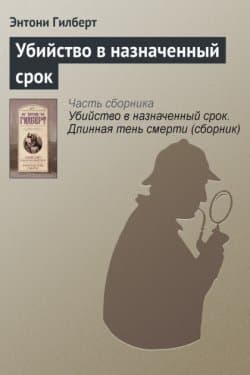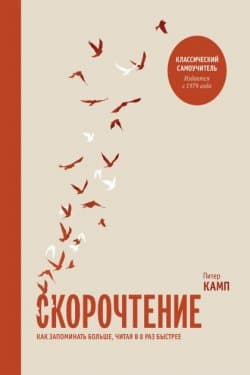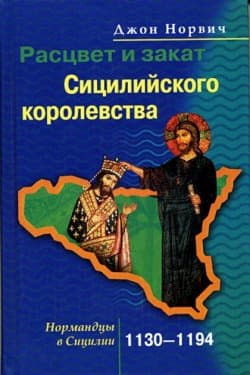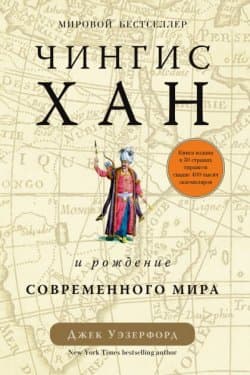Как мы ориентируемся - Маура О’Коннор (2021)
-
Год:2021
-
Название:Как мы ориентируемся
-
Автор:
-
Жанр:
-
Язык:Русский
-
Страниц:200
-
Рейтинг:
-
Ваша оценка:
Автор рассматривает вопросы, которые связаны с навыком ориентирования в пространстве у людей, животных. За счет чего животные способны мигрировать и ориентироваться с поразительной точностью? Каким образом наши предки расселились по всему миру? Маура О’Коннор задалась вопросом, что происходит, когда мы полаемся на навигацию в гаджете, предыдущим навигационным приборам? Что конкретно делает человек во время ориентирования на местности? Чем и почему мы отличается от китов, птиц, пчел? Каким образом повлияли на наше передвижение по миру и представление о своем месте в нем скорость, удобство, технологии? Материал для книги был собран из разных областей знаний и позволил открыть удивительную историю происхождения способностей человека к ориентированию.
Как мы ориентируемся - Маура О’Коннор читать онлайн бесплатно полную версию книги
Prinz Jesse. Culture and Cognitive Science // In The Stanford Encyclopedia of Philosophy, edited by Edward N. Zalta, Fall 2016. Metaphysics Research Lab, Stanford University, 2016. stanford. edu/archives/fall2016/entries/culture-cogsci/.
Putuparri Tom Lawford. Oral History // Canning Stock Route Project, 2014. Доступ 10.02.2016.
Qumaq Taamusi. A Survival Manual: Annaumajjutiksat // Tumivut, № 78 (1995). Rasmussen, Knud. Across Arctic America: Narrative of the Fifth Thule Expedition. First edition. Fairbanks: University of Alaska Press, 1999.
Radcliffe-Brown Alfred Reginald, Raymond William Firth, and Adolphus Peter Elkin. Oceania: A Journal Devoted to the Study of the Native Peoples of Australia, New Guinea, and the Islands of the Pacific Ocean, 1975. P. 271.
Redish A. David. Beyond the Cognitive Map: From Place Cells to Episodic Memory. A Bradford Book. Cambridge, MA: MIT Press, 1999.
Relph Edward. Place and Placelessness. L.: Pion, 1976.
Revell Grant, and Jill Milroy. Aboriginal Story Systems: Re-Mapping the West, Knowing Country, Sharing Space // Occasion: Interdisciplinary Studies in the Humanities 5 (March 1, 2013). stanford. edu/node/123.
Richards Graham. Race, Racism and Psychology: Towards a Reflexive History. N. Y.: Routledge, 2003.
Rissotto Antonella, and Francesco Tonucci. Freedom of Movement and Environmental Knowledge in Elementary School Children // Journal of Environmental Psychology 22, № 1 (March 1, 2002). P. 65–77.
Ritz Thorsten, Salih Adem, and Klaus Schulten. A Model for Photoreceptor-Based Magnetoreception in Birds // Biophysical Journal 78, № 2 (February 1, 2000). P. 707–718. )76629-X.
Robaey Philippe, Sam McKenzie, Russel Schachar, Michel Boivin, and Véronique D. Bohbot. Stop and Look! Evidence for a Bias Towards Virtual Navigation Response Strategies in Children with ADHD Symptoms // In Developmental Regulation of Memory in Anxiety and Addiction // Special issue of Behavioural Brain Research 298, № Part A (February 1, 2016). P. 48–54.
Robbins J. GPS Navigation… but What Is It Doing to Us? // In 2010 IEEE International Symposium on Technology and Society, 309–318. Wollongong, Australia: IEEE, 2010.
–—. When Smart Is Not: Technology and Michio Kaku’s the Future of the Mind [Leading Edge] // IEEE Technology and Society Magazine 35, № 2 (June 2016). P. 29–31.
Roberts Mere. Mind Maps of the Maori // GeoJournal 77, № 6 (September 4, 2010). P. 741–751.
Rogers Dallas. The Poetics of Cartography and Habitation: Home as a Repository of Memories // Housing, Theory and Society 30, № 3 (September 1, 2013). P. 262–280.
Rose Deborah Bird. Dingo Makes Us Human: Life and Land in an Australian Aboriginal Culture. First edition. Cambridge: Cambridge University Press, 2000.
Rosello Oscar (Rosello Gil). NeverMind: An Interface for Human Memory Augmentation // Thesis, Massachusetts Institute of Technology, 2017.
Rozhok Andrii. Orientation and Navigation in Vertebrates. Softcover reprint of hardcover first edition. 2008 edition. Berlin: Springer, 2010.
Rubin David C. Memory in Oral Traditions: The Cognitive Psychology of Epic, Ballads, and Counting-Out Rhymes. N. Y.: Oxford University Press, 1997.
–—. The Basic-Systems Model of Episodic Memory // Perspectives on Psychological Science 1, № 4 (December 2006). P. 277–311.

 Человек среди людей
Человек среди людей  Разум убийцы
Разум убийцы  Аскетизм 2
Аскетизм 2  Страх
Страх 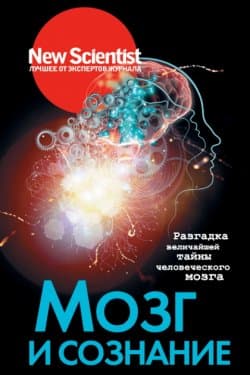 Мозг и сознание
Мозг и сознание  Среда обитания: Как архитектура влияет на наше поведение и самочувствие
Среда обитания: Как архитектура влияет на наше поведение и самочувствие  Пир теней
Пир теней  Князь во все времена
Князь во все времена  Когда порвется нить
Когда порвется нить  Пока я здесь
Пока я здесь 






